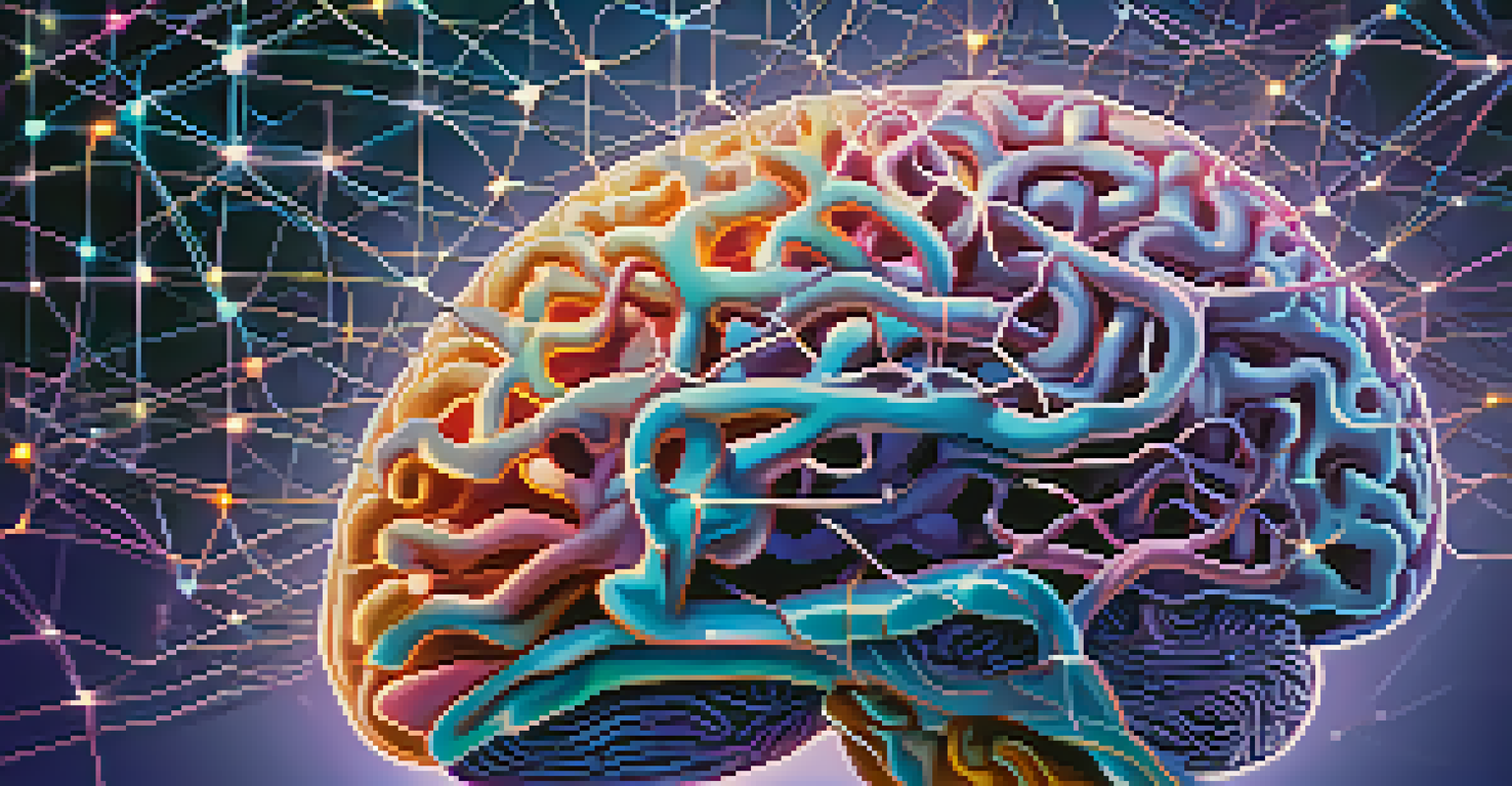Exploring the Role of LSD in Enhancing Memory Retention

Understanding Memory Retention: A Brief Overview
Memory retention is the ability to preserve and recall information over time. It's a crucial part of learning, helping us store experiences and knowledge for future use. Think of it like a library, where every book represents a memory that we can access when needed.
Memory is the treasure house of the mind wherein the monuments thereof are kept and preserved.
There are various factors influencing memory retention, including attention, emotional state, and even our environment. For instance, when we’re stressed, our ability to remember can diminish, similar to trying to read a book in a noisy room. Conversely, being in a calm, focused state can enhance our ability to absorb information.
In recent years, scientists have been exploring how substances like LSD might affect this process. The curious link between psychedelics and cognitive function opens a new door to understanding how we remember and learn.
What is LSD and How Does it Work?
LSD, or lysergic acid diethylamide, is a powerful psychedelic known for altering perception and mood. It primarily interacts with serotonin receptors in the brain, which play a key role in regulating mood, cognition, and perception. Imagine it as a key that unlocks different doors in your mind, allowing you to explore new pathways of thought.

The effects of LSD can vary widely from person to person, often leading to altered sensory experiences and deep introspection. While some may experience vivid visual hallucinations, others report enhanced creativity and emotional insight. This variability raises intriguing questions about how these experiences might influence memory.
Ethics in LSD Research Critical
Ensuring ethical standards and participant safety is essential when exploring the use of LSD for memory enhancement.
Recent studies suggest that LSD could enhance certain aspects of memory by promoting neuroplasticity—the brain's ability to reorganize itself. This means that LSD might help form new connections between neurons, which can facilitate better memory retention.
Research on LSD and Memory Retention
Scientific interest in the relationship between LSD and memory retention has grown, leading to various studies exploring this connection. Some early research indicates that LSD might improve recall and the ability to learn new information. For instance, participants in controlled studies have reported enhanced memory performance after LSD administration compared to a placebo.
The mind is everything. What you think you become.
One study found that individuals who took LSD demonstrated increased recall of word pairs, suggesting that the substance may enhance associative memory. This means that LSD could help people connect related concepts more effectively, almost like finding a shortcut in a vast library to retrieve information.
While the results are promising, it's essential to approach this research cautiously. The effects of LSD can be unpredictable, and factors such as dosage, setting, and individual differences play significant roles in the overall experience.
The Benefits and Risks of Using LSD for Memory
Exploring the potential benefits of LSD in enhancing memory retention is exciting, but it’s vital to weigh these against the risks involved. On one hand, proponents argue that LSD could offer therapeutic benefits, particularly in treating conditions like PTSD or depression, which may indirectly improve cognitive function and memory.
On the other hand, using LSD is not without its dangers. Adverse effects can include anxiety, paranoia, and distortions in perception, which can hinder rather than help memory retention. Think of it like running a race; if you're distracted by obstacles, you may not reach your destination effectively.
LSD May Boost Memory Retention
Research indicates that LSD could enhance memory recall and learning by promoting neuroplasticity in the brain.
Responsible use and further research are necessary to ensure that any potential benefits are maximized while minimizing risks. The conversation around psychedelics is evolving, and understanding their role in memory retention is just one part of a larger picture.
LSD and Neuroplasticity: A Deeper Look
Neuroplasticity refers to the brain's ability to adapt and reorganize itself throughout life. This fascinating concept is central to understanding how LSD may enhance memory retention. Essentially, when we learn something new, our brain forms new connections, and LSD might amplify this process, allowing for quicker and more robust memory formation.
Research indicates that psychedelics can promote the growth of dendritic spines, tiny protrusions on neurons that facilitate communication between brain cells. This could mean that LSD not only aids in creating new memories but also strengthens existing ones, much like reinforcing the spine of a book to keep its pages intact.
However, while these effects on neuroplasticity are promising, they require more extensive study. Understanding the precise mechanisms through which LSD influences neuroplasticity could unlock new approaches to learning and memory enhancement.
The Future of LSD Research and Memory Enhancement
As research into psychedelics continues to expand, the future looks bright for understanding the role of LSD in memory enhancement. Ongoing studies aim to clarify the specific conditions under which LSD might be most beneficial for memory retention. This could lead to innovative therapeutic approaches for individuals struggling with memory-related issues.
Moreover, the potential to use LSD in educational settings is an exciting prospect. Imagine a world where students could take a controlled dose of LSD to enhance their learning experience, much like how caffeine can boost alertness. However, this idea remains speculative and would require rigorous testing and ethical considerations.
Benefits vs. Risks of LSD Use
While LSD shows potential therapeutic benefits for cognitive function, it also carries risks such as anxiety and perceptual distortions.
Ultimately, the exploration of LSD's impact on memory retention may pave the way for groundbreaking discoveries in cognitive science. As we learn more, the conversation around psychedelics will likely shift, focusing on their potential benefits rather than solely their risks.
Ethical Considerations in LSD Research
With great promise comes great responsibility, especially when it comes to substances like LSD. Ethical considerations are paramount in any research involving psychedelics, particularly given their history and societal implications. Ensuring the safety and well-being of participants is a top priority, and informed consent is essential.
Researchers must navigate the complexities of legal regulations surrounding LSD, which vary significantly across different regions. This legal landscape can sometimes stifle research opportunities and limit our understanding of the potential benefits of psychedelics in enhancing memory retention.

As we push the boundaries of science, it's crucial to engage in thoughtful discussions about the ethical implications of using LSD as a cognitive enhancer. Balancing innovation with responsibility will be key to unlocking the full potential of this fascinating area of study.